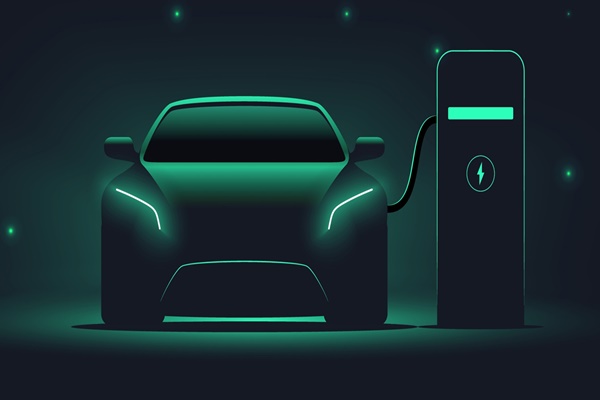The steady rise in popularity for electric vehicles seems to be accelerating year on year. In the beginning, the world appeared to view electric vehicles as a niche, something of a phase or a technology that would never surpass ICE vehicles, but the evolution and development of EVs has proven that they’re so much more than that.
Electric vehicles point the way to a better and more sustainable future. Their rise to popularity has boomed in recent years, since 2018 to 2021 there were approximately 16.5 million electric vehicles on the roads worldwide and the figures for 2022 saw 2-million vehicles sold in the first quarter alone, which is up a massive 75% according to iea.org.
Although not all countries are complicit with the ban on fossil fuels and ICE vehicles, we can clearly see more and more countries around the globe are committing to a greener future – only together can we achieve net zero emissions. Currently ICE vehicles emit more CO2 than any other source on the planet and are a major contributing factor to greenhouse gasses which have a detrimental impact on not only our health, but our planet as a whole.
The rise of EVs
Electric vehicles have seen a huge boost in popularity. Since 2019 EV registrations have seen a tremendous jump of 43% in just a few short years. This is not only due to the technology coming in to its own, but the benefits of low noise, no pollution, deceptively incredible performance, as well as having low running costs which over time will save you a fortune. There is also a lot of infrastructure support that has developed over the years for electric vehicles too - in the UK alone there has been a boom in charging points for electric cars compared to only a few years ago when things were a lot more scarce. According to Zap-Map:
“At the end of May 2022, there were 32312 charging points across the UK, across 19945 charging locations. This represents a 32% increase in the number of charging devices since May 2021.”
This is a huge increase in the UK, but what about the rest of the world? In the US there is currently over 46,000 charging stations, with a goal of 500,000 public chargers by 2030. The biggest contribution comes from China, now boasting the largest EV charging infrastructure in the world with over 2.2-million charge points. So, it seems the world is listening and gearing up for the electric revolution.
What about performance?
This seems to be a question on a lot of people’s lips, but how important is performance to EV owners? Compared to only a few years ago, electric vehicles were comparatively sluggish and lacked the power and performance of a traditional internal combustion engine, but they still functioned fine.
Electric vehicles originally weren’t known for their performance, but times have definitely changed! With significant advancements in EV technology, we’ve seen a huge improvement with regards to how this greener vehicles perform on our roads. Top speeds now rival that of some of the fastest cars in the world, and EV acceleration capabilities surpass those of their ICE counterparts by quite a large margin.
Battery life used to cause concern too, but again that isn’t the case anymore, with the average charge getting you up to 300 miles and a plethora of charge points available, range anxiety is rapidly becoming a thing of the past.
How reliable are electric vehicles?
The truth is that electric vehicles are incredibly reliable compared to a traditional car. There are much fewer moving parts which is possibly one of the biggest contributor to their superior reliability. It’s these moving parts that seem to fail over time and lead to expensive repairs and time away from your vehicle.
A big concern for electric vehicles is how long the battery itself will last. Now it is important to recognise that we don’t currently have enough data to say for sure how long an electric battery can last, but manufacturers currently state between 10-20 years. But with the rate that technology is progressing, it won’t be surprising at all to see that number sky rocket in years to come.
Other advantages of electric vehicles
In places like London in the UK, there are ZEZs, or “Zero Emission Zones”. These zones are for congested areas that suffer with air pollution. The idea is that cars tend to have to pay a fee to go into these zones, but that isn’t the same for electric vehicles. With electric vehicles you can travel freely without having to worry about paying these costs. This cost avoidance also applies to things like road tax in certain countries, where zero emission vehicles are usually exempt or pay significantly lower fees.
One of the greatest financial advantages for going electric is the travel cost. Electricity on a whole is much cheaper than petrol or diesel in the long-term considering how much range you can get out of an EV battery now. The long-term cost savings for driving an EV rather than a vehicle with an ICE far outweighs the typically higher purchase cost of the car (although purchase costs are decreasing thanks to the greater accessibility to EV tech and the quantity of electric vehicles being produced compared to a few years ago).
Electric vehicles are our future
Every year shows improvements in technology that will not only mean electric vehicles can keep up with ICE vehicles, but that they will continue surpassing them. The sooner we can get used to this, the better off our world will be. Currently, transport makes up the largest sector of greenhouse gas emissions on our planet, and that is a huge problem, but one that is being tackled by the globe as a whole.











0 Comments